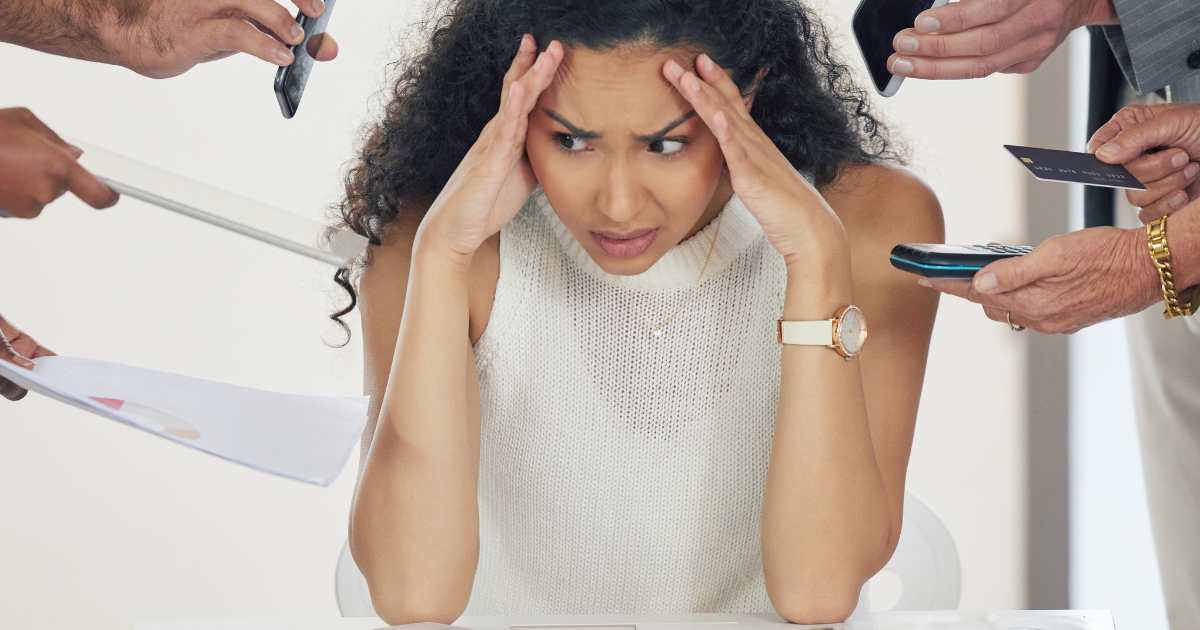Are you struggling with anxiety for a long time and want an effective way to manage it? If yes, there are many methods you can adopt to deal with stress. One option is attaining an anxiety retreat, where mental health professionals provide guidance and support. Sometimes, panic attacks can be so severe that they negatively impact a person’s mental health. In these cases, healthcare providers may prescribe medication for quick relief and management of anxiety.
To get personalized care and telehealth services for anxiety management, you may opt for the services of MAVA Behavioral Health. Our passionate healthcare professionals try their best to reduce your anxiety.
What Is an Anxiety Retreat?
Anxiety retreat is an effective approach that is used to manage and deal with anxiety. Many people discover that treating their anxiety needs a devoted, focused strategy. Furthermore, these anxiety treatments aim to assist people in developing the skills to deal with or manage their anxiety symptoms. Many anxiety retreats provide anxiety rehab, which can be highly effective with a holistic approach to treatment that may include:
- Group therapy
- Individual therapy sessions
- Wilderness or nature therapy
- Art, music, or nature
- Meditation
- Mindfulness practices
Treatment centers are staffed by licensed and trained professionals who understand how anxiety works and how to treat it. To avail of the medication management, you may schedule an appointment with our healthcare providers at MAVA Behavioral Health.
Depression and Anxiety Retreats
A safe and encouraging environment is provided by a mental health retreat for depression, providing a temporary break from everyday life. You can concentrate entirely on improving when you’re not bothered by everyday obligations. Retreats for anxiety and depression are intended to provide a setting for healing. The plan’s goal is to help the individual return to a state of wellness and improved functioning. Several reputable anxiety retreats in Europe offer a combination of medicated and holistic approaches to help manage anxiety.
Similarly, it is accomplished by employing a variety of methods, including holistic approaches that promote a more positive mindset. If you or someone you know is struggling with anxiety or depression, the best course of action is to seek professional help. If you require immediate anxiety treatment, the most appropriate option is to contact MAVA Behavioral Health. We’re here to help you manage your anxiety. While searching for an anxiety retreat near me, consider visiting our health centers located in Texas, Florida, and Illinois.
Social Anxiety Retreat
People who suffer from social anxiety disorder (also known as social phobia) have intense, crippling fears of being criticized, rejected, or adversely evaluated by others. However, they frequently avoid social situations, and also public speaking or performance scenarios. In addition, several renowned anxiety retreats in the USA offer comprehensive programs to help individuals manage and reduce anxiety. A person with severe social anxiety can suffer from more intense signs of social anxiety, such as a panic attack, in social situations. Consequently, people suffering from severe social anxiety typically avoid interactions with others at all costs.
How To Stop Anxiety Thoughts?
Constant worrying can keep you awake at night and make you anxious and stressed during the day. Even if you despise feeling nervous, it can be challenging to stop. Anxiety attacks can be managed in a variety of ways. There are a few ways to calm an anxiety attack, including:
- Set a specific time and place for worrying. It should be the same every day (for example, in the living area from 5:00 to 5:20 p.m.) and begin early enough not to cause anxiety right before nighttime.
- Write down your concerns. If an anxious thought or worry enters your mind during the day, make a short note of it before continuing with your day. Keep in mind that you’ll have time to think about it later. Doing so will consume a lot of effort, and you’ll be conscious about the next time while write your worries.
- Setting strict rules for yourself and punishing yourself for breaking them.
- Allow yourself to fear the thoughts you stated out for a set period. When you look at your concerns in this manner, you will frequently find it easier to develop a more balanced viewpoint.
7 Ways to Deal with Anxiety Retreat
1- Medication
Medications should be viewed as a temporary solution to anxiety disorders, not a permanent one. Psychological treatment medications have been shown in investigations to be far more effective compared to other treatments in the long run for managing anxiety disorders. Your healthcare provider may prescribe a short course of tranquilizers or antidepressants to help you manage your symptoms while other treatment options are under consideration.
2– Dietary Adjustments
Magnesium aids muscle relaxation, and a magnesium deficiency can lead to depression, anxiety, and sleep disorders. Anxiety symptoms can also be worsened by inadequate vitamin B and calcium consumption. Use whole grain products, green leafy vegetables, and low-fat dairy items daily. Nicotine, caffeine, and chemical stimulants (such as caffeine-containing medications) cause your adrenal sweat glands to produce adrenaline, a major stress hormone.
3-Exercise
The physical signs of anxiety are caused by the ‘flight-or-fight’ action, which overwhelms the body with fear and other stress hormones. Exercise reduces stress chemicals and promotes relaxation. Physical activity is another effective way to reduce anxiety. Aim to engage in physical activity at least three to four times per week, and vary your activities to prevent boredom.
4-Building Self-Esteem
The ‘flight-or-fight’ response, which floods the body with adrenaline and other stress chemicals, is responsible for anxiety’s physical symptoms. Exercise eliminates stress hormones and promotes relaxation. Physical activity can also help you cope with anxiety. Aim to engage in some physical activity at least three to four times per week, and vary your activities to avoid boredom.
- Isolation
- Feelings of shame and guilt
- Depressed mood
- Difficulties in functioning at school, work, or in social situations.
5- Practice Focused, Deep Breathing
Measured breathing exercises may help you manage your immediate anxiety. Breathe in for four counts and out for four counts for a total of five minutes. By evening out your breath, you will reduce your heart rate, which should help you relax. Another commonly used breathing pattern for anxiety management is the 4-7-8 technique.
6-Eating A Nutrient-Dense Diet
Low levels of sugar in the blood, dehydration, and chemicals in processed foods can all affect your mood. A diet high in sugar may also influence how you feel. If your anxiety exacerbates after eating, you should consider changing your eating habits. Staying hydrated, avoiding processed foods, and eating a well-balanced diet rich in complex sugars, fruits and vegetables, and nutritious proteins can assist you in managing your symptoms.
7- Prioritizing Getting a Good Night’s Rest
To improve your sleep hygiene, you can do a few tips:
- Sleeping while tired.
- Avoid watching TV or reading in bed.
- Limiting smartphone, tablet, and computer use in bed.
- Eliminating bedtime tossing and turning.
- If unable to sleep, move to another room, even if it is the bathroom.
- Avoid caffeine, large meals, and nicotine before sleep.
- Maintaining a dark and comfortable room temperature.
- Write down your thoughts before bed.
- Maintaining a consistent sleep schedule.
Anxiety Medication Management
Anxiety is a common disorder in our society. On the other hand, medications used to treat mild-to-moderate anxiety, particularly benzodiazepines, are problematic because they can cause injury, side effects, and dependence. Throughout the debrief, everything except anxiety is permitted. As a result, you may retreat from anxiety and depression with effective medication management. Anxiety and tears flowed, but when people began to exhibit anxiety, which typically manifested as hyperventilation, they were forced to stop and breathe.
Anxiety is typically triggered by a situation requiring a decision or judgment; evaluations and tests are common precursors of anxiety in educational settings. A retreat for mental health provides a supportive environment with professional guidance to help improve your well-being.
How to Reduce Anxiety Immediately?
People all over the world are turning to meditation to relieve stress, as research has shown that spending consistent, accurate time in meditation may decrease stress and anxiety. It relieves stress-related disorders like high blood pressure, sleeplessness, chronic pain, and fatigue while also lowering the risk of stress-related diseases like heart disease, gastrointestinal problems, and headaches.
Learn 5 Tips to Reduce Stress
Here are the five stress-reduction tips, which include:
i. Discuss your emotions with friends, family, or a mental health professional.
ii. Prioritize social activities with people you enjoy.
iii. Use techniques like deep breathing, progressive muscle relaxation, and guided imagery.
iv. Do something you enjoy, like reading, gardening, or playing a musical instrument.
v. Limit electronic device use before bedtime for better sleep and stress reduction.
Bottom Line
Anxiety may always be a part of your life, but it shouldn’t control your daily routine. There are many strategies you can use to manage both immediate and long-term anxious feelings. Living with a mood disorder or anxiety is challenging, so why not have someone on your side to help you find the best anxiety retreat? If you’re looking for retreats for mental health, reach out to MAVA Behavioral Health. Our healthcare providers are here to listen to you and recommend the best treatment solutions. After assessing your current mental health, they may also suggest appropriate medication to help manage your symptoms.











